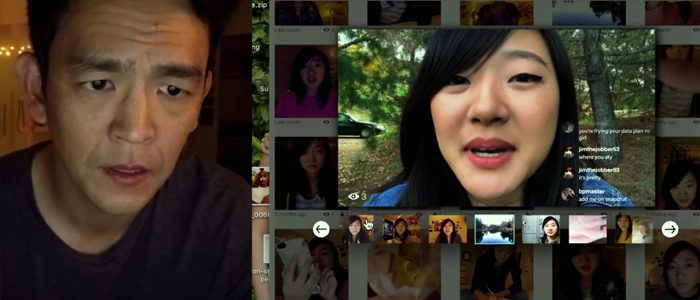What is Genre Cinema is 2018? Final Notes from the Fantasia Film Festival

From the first time you sit in that crowded theatre and hear the collective murmurings, you know that you’re up for a special experience. Genre fans are some of the most passionate and knowledgeable film fans out there. And for these fans, Montreal’s Fantasia Film Festival is like a pilgrimage. It’s a chance to watch, discuss (and buy!) some of the best genre films of the year to come.
But what’s most peculiar about the festival is how it labels itself as a genre festival, but its programming often dissolves those established barriers. Genre is more a term used in film marketing departments than it is used by filmmakers. That’s partly due to the fact that so many popular “genre” films nowadays are not just one thing. Indeed, Fantasia is home to the multi-hyphenate film: Japanese-Zombie-Meta-Comedy (One Cut of the Dead), High School-Christmas-Zombie-Musical (Anna and the Apocalypse), and Neo-Noir-Slacker-Comedy (Under the Silver Lake). Basically the one rule of mixing styles and genres is: if you can justify it, you can pull it off.
Fantasia is taste tester for genre cinema. If you’re a weird little movie, a badge of approval from the fest is as good as you can get. So, if the festival curates and shapes the future of genre cinema, maybe it can help answer a big question: what is genre cinema in 2018? Is it simply a re-working of classics from across genres? Though 2018 has showcased a lot of nostalgia horror, riding on the coattails of Stranger Things and It, there were only a few major nostalgia pieces (notably Summer of ’84) at this year’s festival. In fact, some of the most terrifying films were set in present day. One reason might be a budgeting one: period pieces are expensive and most genre films do not have big budgets.
But another might also be that 2018’s socio-political battleground is bloody terrifying.

Horror.com
“Screenlife” was a major subgenre at this festival. There were three features that took place entirely on computer screens and even more that engaged with online personas. If this subgenre says anything, it’s that the internet is to fear. But the internet is only a vehicle, not the perpetrator. So then, the anonymity and physical distance that the internet provides is what’s to fear. And of course, being targeted by people who know how to use the internet much, much better than you. That couldn’t be more crystalline than in Unfriended: Dark Web, a thriller that positions the dark web as an unknowable force of evil that tortures regular folks just because they can. It’s the first of perhaps many in the ‘desktop invasion’ subgenre. It hinges on whether you fear trolls spying on you through your laptop, rather than, say the NSA.
Searching on the other hand offers a more nuanced perspective. An online assailant kidnaps a girl, but John Cho’s dexterous navigation of his daughter’s laptop and social media accounts is what could save her. It’s not a ‘pure’ screenlife film because it doesn’t stick to a single device and often displays information solely for us. It takes the common parental fear of discovering your child has a second life you didn’t know about and twists it to a reassuring end. Though it rolls its eyes at the performativity of certain internet users, it offers a much more wholesome view of average teens on the internet.
Another film that does not offer a clear resolution is CAM. It’s a thrilling feminist piece that doesn’t for a second shame its cam-girl protagonist Alice/Lola for doing sex work. It builds tension and narrative around the theft of Alice’s online persona. After getting locked out of her account, she watches in horror as an identical-looking Lola breaks her self-imposed camming rules (one being no fake orgasms) and pushes the boundaries to breaking point. Though the film lacks a satisfying explanation as to why and how this identity theft occurred, which reinforces the perception of the internet as faceless and nefarious, it doesn’t ultimately position Alice as a victim. She is in control of how she presents herself online and will not cease sex work out of fear.
We’ll be seeing more thrillers and horror films set online. Heck, I wouldn’t be surprised if Hollywood does an Invasion of the Body Snatchers screenlife-edition!

Reevaluating or Recreating the Maladies of Genre Cinema
As we peruse the back catalog of cinema, there are more than a few classics that could do with some reevaluating. Of course, reevaluating does not mean de-valuing as many would suggest. It simply means learning from the past so as to make more informed work.
Chained for Life does a masterful job of paying homage to Freaks and Elephant Man, while questioning their politics. It doesn’t propose we banish those films to a clearance bin, but rather asks how these films shaped our culture and our attitude towards disfigured and disabled people. The film is similar in that way to The Love Witch (which played at the festival in 2016). Both take aesthetic and narrative devices from these nostalgia pieces and reframe them. While Chained for Life might not be right for someone who wants a straight up Z-movie without the behind-the-scenes intrigue, it’s a great indication of how genre cinema can bridge the gap between offering a caring critique and blindly indulging in nostalgia.
Under the Silver Lake however, seems to simultaneously critique and reproduce the male gaze that dominates a lot of noir and neo-noir thrillers. It’s like Chinatown but without the incest and a slacker stoner instead of Jack Nicholson, right? Or like Mulholland Dr., but instead it’s about a dude that’s seen that movie too many times? Sorta, yeah. Because everything is seen through the paranoid, sex-craving perspective of a young man, it’s unclear how critical David Robert Mitchell is of this perspective. Certainly, the climax of the film does offer some of kind of ironic feminist retribution, but there are too many two-dimensional women in the film for it to make its case as a new kind of neo-noir that doesn’t keep women in the shadows. Beyond its lopsided representation, the film seeks meaning where there appears to be none. And then it beats you over the head with it.
Continue Reading What is Genre Cinema in 2018? >>
The post What is Genre Cinema is 2018? Final Notes from the Fantasia Film Festival appeared first on /Film.
from /Film https://ift.tt/2Bvi80C
No comments: